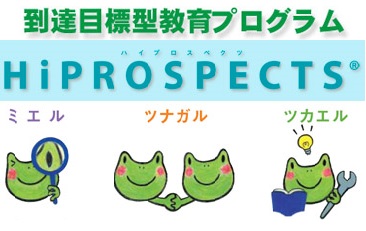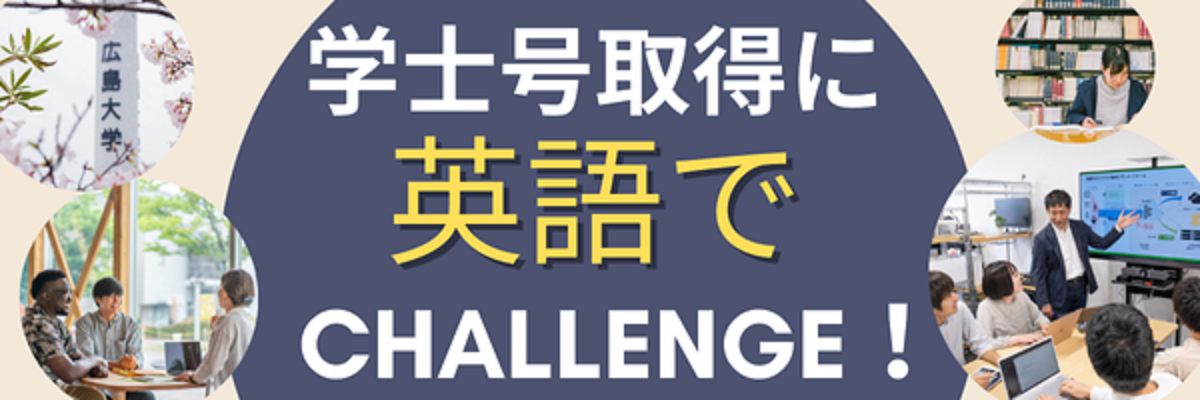学部のアドミッション・ポリシー
1 求める学生像
総合科学部では、豊かな教養を備えると同時に、幅広い知識を統合して問題解決を図ることができ、地域社会や国際社会に貢献できる人材の育成を目指しており、次のような人の入学を期待します。
(1) 知的好奇心に富み、文理融合をはじめとする新たな学問的創造を求めることのできる人
(2) 意見や文化的背景等の異なる人とも共同し、 問題の解決に向かって努力できる人
2 入学者選抜の基本方針
総合科学科及び国際共創学科が編成している主専攻プログラムのディプロマ・ポリシー及びカリキュラム・ポリシーを踏まえ、入学者に求める能力やその評価方法を「学力の3要素」と関連付けて明示し、多面的・総合的な評価による選抜を実施します。
募集単位(学科・コース)のアドミッション・ポリシー
総合科学部 総合科学科
1 求める学生像
本学科が編成している総合科学プログラムのディプロマ・ポリシー及びカリキュラム・ポリシーを踏まえ、入学前に以下のような多様な能力を身につけてきた学生を求めています。
(1) 基礎的学力を幅広く身につけ、既存の学問分野の枠を超えて、より広い視野で世界をみようと考えている人
(2) 知的好奇心に富み、自ら問題を発見し、その問題の背景を理解し、問題解決の道を洞察しようとする意欲を持つ人
(3) 他者を理解し自己を表現できる能力を身につけ、卒業後、地域、社会、国の境界を超えて活躍できる人
なお、入学前に学習しておくことが期待される内容は、以下のとおりです。
・ 文系・理系の枠組みを超えた幅広い学問領域や現代社会の諸問題に対して興味を持ち自ら学習しておくこと
・ 異文化理解や国際社会を舞台とした活動に関心を寄せ、学習しておくこと
また、入学後には以下の能力を育成します。
・ 既存の学問体系を尊重しながら、複数の学問領域で創出された知識や研究法を学び、それぞれの領域が現代の諸問題とどのように関連しているかを理解できる
・ 多岐にわたる知識や情報の収集整理と分析統合を通して、それらが持つ新たな意味や価値を見出すことができる
・ 多角的な視野からの知識に基づき、さまざまな課題を総合的に解決し、自己の責任において判断して行動できる
・ 日本語と外国語の表現力・理解力及び豊かな感性を涵養し、異文化・異領域の人びととコミュニケーションできる
2 入学者選抜における重点評価項目
|
区分 |
関心・意欲・態度 |
知識・技能 |
思考力・判断力・表現力 |
主体性・協働性 |
|||||
|
一般入試 |
前期日程 |
|
|
○ |
大学入試センター試験(※1)、個別学力検査等 |
○ |
大学入試センター試験(※1)、個別学力検査等 |
|
|
| 後期日程 |
○ |
面接 |
○ |
大学入試センター試験(※1) |
○ |
大学入試センター試験(※1)、面接 |
|
|
|
|
広島大学光り輝き入試 |
AO入試 (総合評価方式Ⅰ型) |
○ |
面接、自己推薦書 |
○ |
小論文、調査書、自己推薦書 (※2)英語外部検定試験の成績証明書等 |
○ |
面接、自己推薦書 |
○ |
自己推薦書 |
| AO入試 (帰国生入試) |
○ |
面接、志望の動機 |
○ |
小論文、成績証明書又は調査書、志望の動機 (※2)英語外部検定試験の成績証明書等 |
○ |
面接、志望の動機 |
○ |
志望の動機 |
|
| AO入試 (フェニックス方式) |
○ |
面接 |
○ |
小論文 |
○ |
面接 |
|
|
|
|
私費外国人留学生入試 |
2月実施 |
|
|
○ |
日本留学試験、英語外部検定試験の成績証明書等、個別学力検査等 |
○ |
個別学力検査等 |
|
|
| 3月実施 |
○ |
面接 |
○ |
日本留学試験、英語外部検定試験の成績証明書等 |
○ |
面接 |
|
|
|
(※1) 大学入試センター試験を利用する入試については,本学が定める基準を満たす
「英語外部検定試験の成績証明書等」を出願書類と共に提出した場合は,大学入試
センター試験の外国語(英語)の得点を満点とみなします。
(※2) AO入試の英語外部検定試験の成績証明書等の提出は任意です。
3 入学者受入れの基本方針
【一般入試(前期日程)】
大学入試センター試験(文科系:5又は6教科8科目、理科系:5教科7科目。900点満点)及び個別学力検査等(文科系:外国語、小論文。理科系:数学、理科。1.200点満点)の総合点で評価します。
《知識・技能》
高等学校段階での基礎的・基本的な知識を習得していることを確認し、総合科学プログラムのカリキュラム・ポリシーに適応可能な能力を見るために、大学入試センター試験及び個別学力検査等で評価します。
《思考力・判断力・表現力》
知識を活用して課題を解決するために必要な思考力、判断力、表現力が育まれているかを、個別学力検査等で評価します。大学入試センター試験でも思考力を評価します。
【一般入試(後期日程)】
大学入試センター試験(5又は6教科 7又は8科目。1.500点満点)及び面接(200点満点)の総合点で評価します。
《関心・意欲・態度》
総合科学部で学ぶことの意義、学習意欲について確認し、併せて社会的諸問題に対する関心や論理的思考力について問い、その対応の仕方・態度を面接で評価します。
《知識・技能》
高等学校段階での基礎的・基本的な知識を習得していることを確認し、総合科学プログラムのカリキュラム・ポリシーに適応可能な能力を見るために、大学入試センター試験で評価します。
《思考力・判断力・表現力》
知識を活用して課題を解決するために必要な思考力、判断力、表現力が育まれているかを、面接で評価します。大学入試センター試験でも思考力を評価します。
【広島大学光り輝き入試 AO入試(総合評価方式Ⅰ型)】
第1次選考として出願書類(調査書、自己推薦書。段階評価)で評価します。最終選考は小論文(300点満点)と面接(300点満点)による評価及び出願書類(調査書、自己推薦書)で総合的に評価します。
《関心・意欲・態度》
旺盛な知的好奇心を持つあるいは特定分野で特に優れた能力を確認するために、面接、自己推薦書で評価します。
《知識・技能》
幅広い基礎的学力、論理的思考力、読解力と表現力を習得していることを確認し、総合科学プログラムのカリキュラム・ポリシーに適応可能な能力を見るために、小論文(当日受講する講義内容を含める)及び調査書、自己推薦書で評価します。英語外部検定試験の成績証明書等を提出した場合も評価します。
《思考力・判断力・表現力》
幅広い基礎的学力、論理的思考力、判断力、表現力を面接、自己推薦書で評価します。
《主体性・協働性》
課題を解決するために必要な主体性・協働性が育まれているかを、自己推薦書で評価します。
【広島大学光り輝き入試 AO入試(対象別評価方式 帰国生入試)】
第1次選考として出願書類(成績証明書又は調査書、志望の動機。段階評価)で評価します。最終選考は小論文(300点満点)及び面接(200点満点)による評価及び出願書類(成績証明書又は調査書、志望の動機)で総合的に評価します。
《関心・意欲・態度》
幅広い知的関心を持ち、現代社会が直面する様々な問題の中から自分が取り組むべき問題を発見できる知的能力や海外生活の経験を活かして国際社会で活躍できる広い視野を確認するために面接、志望の動機で評価します。
《知識・技能》
幅広い基礎的学力、論理的思考力、読解力と表現力を習得していることを確認し、総合科学プログラムのカリキュラム・ポリシーに適応可能な能力を見るために、小論文(当日受講する講義内容を含める)及び成績証明書又は調査書、志望の動機で評価します。英語外部検定試験の成績証明書等を提出した場合も評価します。
《思考力・判断力・表現力》
海外生活の経験から習得した表現力や自分が取り組むべき問題を解決できる道筋を探り出せる柔軟な思考力、判断力、表現力を面接、志望の動機で評価します。
《主体性・協働性》
海外生活の経験を活かして課題を解決するために必要な主体性・協働性が育まれているかを、志望の動機で評価します。
【広島大学光り輝き入試 AO入試(対象別評価方式 フェニックス方式)】
小論文(300点満点)及び面接(200点満点)で評価します。
《関心・意欲・態度》
読解力、論理的思考力と表現力に加え、生涯にわたって学び続ける意欲を面接で評価します。
《知識・技能》
読解力、論理的思考力を確認し、総合科学プログラムのカリキュラム・ポリシーに適応可能な能力を小論文(当日受講する講義内容を含める)で評価します。
《思考力・判断力・表現力》
社会人としての経験から習得した表現力や自分が取り組むべき問題を解決できる道筋を探り出せる柔軟な思考力、判断力、表現力を面接で評価します。
【私費外国人留学生入試(2月実施)】
個別学力検査等(文科系:外国語・小論文。理科系:数学・理科。1.200点満点)に日本留学試験(文科系:3教科3科目。理科系:3教科4科目)及び英語外部検定試験の成績証明書等の結果を勘案して総合的に評価します。
《知識・技能》
日本国の高等学校段階での基礎的・基本的な知識を習得していることを確認し、総合科学プログラムのカリキュラム・ポリシーに適応可能な能力を見るために、個別学力検査等に日本留学試験及び英語外部検定試験の成績証明書等を加えて評価します。
《思考力・判断力・表現力》
知識を活用して課題を解決するために必要な思考力、判断力、表現力が育まれているかを、個別学力検査等で評価します。
【私費外国人留学生入試(3月実施)】
面接(200点満点)に日本留学試験(3教科3科目又は3教科4科目)及び英語外部検定試験の成績証明書等の結果を勘案して総合的に評価します。
《関心・意欲・態度》
総合科学部で学ぶことの意義、さらには意欲についての確認、併せて当面する諸問題に対する各自の問題意識や論理的思考力について、その対応の仕方・態度などを面接で評価します。
《知識・技能》
日本国の高等学校段階での基礎的・基本的な知識を習得していることを確認し、総合科学プログラムのカリキュラム・ポリシーに適応可能な能力を見るために、日本留学試験及び英語外部検定試験の成績証明書等で評価します。
《思考力・判断力・表現力》
知識を活用して課題を解決するために必要な思考力、判断力、表現力が育まれているかを、面接で評価します。
総合科学部 国際共創学科
1 求める学生像
本学科が編成している国際共創プログラムのディプロマ・ポリシー及びカリキュラム・ポリシーを踏まえ、入学前に以下のような多様な能力を身につけてきた学生を求めています。
(1) 異なる国や文化、宗教を尊重し、学問分野の枠を超えて課題を理解し、世界平和に貢献したいと考えている人
(2) 自然科学に関心があり、人と環境の調和を希求する人
(3) 母語以外の言語の習得に意欲的であり、卒業後、国際社会で活躍できる人
なお、入学前に学習しておくことが期待される内容は、以下のとおりです。
・ 文系・理系の枠組みを超えた幅広い学問領域や現代社会の諸問題に対して興味を持ち自ら学習しておくこと
・ 国際社会、地球環境問題、文化間理解といった内容に関心を寄せ、学習しておくこと
また、入学後には以下の能力を育成します。
・ 国際社会の抱える諸課題を文系・理系の枠を超えて多角的な視点から理解・分析することができる(学際的思考力 integrated thinking)
・ 国や地域、文化や宗教、言語の違いを超えて他者を理解し、人間社会とそれを取り巻く自然を包含した地球的視点でものごとを考察できる(地球的展開 global vision)
・国際社会の抱える諸課題に対して、平和を希求する心を持って対応し、国際平和や人と自然の調和のために協調的・創造的に取り組むことができる(協調的行動力 cooperative action)
The Department of Integrated Global Studies hopes to admit students with the following attributes, based on the diploma policy and curriculum policy for the Integrated Global Studies Program organized by the Department.
(1) Students who would like to understand global issues with an integrative perspective to pursue world peace while respecting linguistic, cultural, and religious differences;
(2) Students who are interested in natural sciences and would like to work towards the harmonious relationship between human beings and nature; and
(3) Students who are willing to improve language skills and make a contribution to global society.
The Department expects that, before enrollment, prospective students have developed an interest in and learned about the following:
・A wide range of academic areas across disciplinary boundaries such as the humanities and sciences, and various challenges confronting present-day society
・Problems and issues regarding the international community, the global environment, and cross-cultural understanding
After enrollment, the Department will nurture the students’ abilities to:
・Understand and analyze the various challenges confronting the international community from multifaceted perspectives transcending disciplinary boundaries between the humanities and sciences (integrated thinking)
・Understand others irrespective of the differences among countries/regions, cultures, religions and languages, and think about things from a global perspective encompassing human society and its surrounding natural environment (global vision)
・Address various challenges of the international community from a peace-seeking viewpoint, and work toward the realization of world peace and harmony between people and nature, in a cooperative and creative manner (cooperative action)
2 入学者選抜における重点評価項目
|
区分 |
関心・意欲・態度 |
知識・技能 |
思考力・判断力・表現力 |
主体性・協働性 |
|||||
|
一般入試 |
|
|
○ |
大学入試センター試験(※)、個別学力検査 |
○ |
大学入試センター試験(※)、個別学力検査 |
|
|
|
| 広島大学光り輝き入試 |
AO入試(対象別評価方式)IGS入試(国内選抜型) |
○ |
面接、自己推薦書 |
○ |
学業成績・各種試験結果証明書、自己推薦書、出願要件証明書類 |
○ |
面接、自己推薦書 |
○ |
自己推薦書 |
|
AO入試(対象別評価方式)IGS入試(国外選抜型) |
○ |
面接、自己推薦書 |
○ |
学業成績・各種試験結果証明書、自己推薦書、出願要件証明書類 |
○ |
面接、自己推薦書 |
○ |
自己推薦書 |
|
| 私費外国人留学生入試 |
7月実施(国外選抜型) |
○ |
面接、自己推薦書 |
○ |
学業成績・各種試験結果証明書、自己推薦書、出願要件確認書類 |
○ |
面接、自己推薦書 |
○ |
自己推薦書 |
| 2月実施(国内選抜型)文科系/理科系 | ○ | 面接、自己推薦書 | ○ | 学業成績・各種試験結果証明書、日本留学試験、自己推薦書、出願要件証明書類 | ○ | 面接、自己推薦書 | ○ | 自己推薦書 | |
(※)大学入試センター試験を利用する入試については、本学が定める基準を満たす「英語外部検定試験の成績証明書等」を出願書類と共に提出した場合は、大学入試センター試験の外国語(英語)の得点を満点とみなします。
3 入学者受入れの基本方針
【一般入試(前期日程)】
大学入試センター試験(文科系:5又は6教科8科目、理科系:5教科7科目。900点満点)及び個別学力検査(文科系:国語・外国語。理科系:理科・外国語。1.200点満点)の総合点で評価します。
《知識・技能》
高等学校段階での基礎的・基本的な知識を習得していることを確認し、国際共創プログラムのカリキュラム・ポリシーに適応可能な能力を見るために、大学入試センター試験及び個別学力検査で評価します。
《思考力・判断力・表現力》
知識を活用して課題を解決するために必要な思考力、判断力、表現力が育まれているかを、個別学力検査で評価します。大学入試センター試験でも思考力を評価します。
【広島大学光り輝き入試 AO入試 (対象別評価方式)IGS入試(国内選抜型及び国外選抜型)】
第1次選考は出願書類(自己推薦書)、出願要件証明書類及び学業成績・各種試験結果証明書の総合評価(A~Dの4段階評価)により評価します。最終選考は面接結果の総合評価(300点満点)に、出願書類(自己推薦書)、出願要件証明書類及び学業成績・各種試験結果証明書の評価を加味して総合的に評価します。
《関心・意欲・態度》
幅広い知的関心を持ち、現代社会が直面する様々な問題の中から自分が取り組むべき問題を発見できる知的能力や国際社会で活躍できる広い視野を確認するために面接及び自己推薦書で評価します。
《知識・技能》
幅広い基礎的学力、論理的思考力、読解力と表現力を習得していることを確認し、国際共創プログラムのカリキュラム・ポリシーに適応可能な能力を見るために、学業成績・各種試験結果証明書、自己推薦書及び出願要件証明書類で評価します。
《思考力・判断力・表現力》
自分が取り組むべき問題を解決できる道筋を探り出せる柔軟な思考力、判断力、表現力を面接及び自己推薦書で評価します。
《主体性・協働性》
自分が取り組むべき問題を解決するために必要な主体性・協働性が育まれているかを、自己推薦書で評価します。
【Entrance Examination for International and Japanese Applicants Residing outside Japan】
Important evaluation items
[Interest, motivation and attitude]
Interviews and personal statements are used to assess if the applicants have extensive intellectual interest, the intellectual ability to determine what they should address from among the various challenges confronting present-day society, and the broad perspective that is required in order to play an active role in the international community.
[Knowledge and skills]
Academic transcripts and test results, personal statements, and documents to prove English language proficiencyare used to assess if the applicants have the capability to adapt to the curriculum policy of the Department of Integrated Global Studies, by confirming that they have acquired broad basic academic abilities, logical thinking ability, the ability to read and comprehend, and the power of expression.
[Ability to think, judgeand have expressive power]
Interviewsand personal statements are used to assess if they have anability to thinkflexibly, judgeand have expressive power in order to find ways to resolve problems that they should address.
[Independence and cooperativity]
Personal statements are used to assess if they have developed the independenceand cooperativitynecessary to resolve problems that they should address.
【Entrance Examination for International and Japanese Applicants Residing in Japan】
Important evaluation items
[Interest, motivation and attitude]
Interviews and personal statements are used to assess if the applicants have extensive intellectual interest, the intellectual ability to determine what they shouldaddress from among the various challenges confronting present-day society, and the broad perspective that is required in order to play an active role in the international community.
[Knowledge and skills]
Academic transcripts and test results, personal statements, and documents to prove English language proficiencyare used to assess if the applicants have the capability to adapt to the curriculum policy of the Department of Integrated Global Studies, by confirming that they have acquired broad basic academic abilities, logical thinking ability, the ability to read and comprehend, and the power of expression.
[Ability to think, judgeand have expressive power]
Interviewsand personal statements are used to assess if they have anability to thinkflexibly, judgeand have expressive power in order to find ways to resolve problems that they should address.
[Independence and cooperativity]
Personal statements are used to assess if they have developed the independenceand cooperativitynecessary to resolve problems that they should address.
【私費外国人留学生入試 7月実施/ Entrance Examination for International Applicants Residing outside Japan】
Important evaluation items
[Interest, motivation and attitude]
Interviews and personal statements are used to assess if the applicants have extensive intellectual interest, the intellectual ability to determine what they should address from among the various challenges confronting present-day society, and the broad perspective that is required in order to play an active role in the international community.international community.
[Knowledge and skills]
Academic transcripts and test results, personal statements, and documents to prove English language proficiencyare used to assess if the applicants have the capability to adapt to the curriculum policy of the Department of Integrated Global Studies, by confirming that they have acquired broad basic academic abilities, logical thinking ability, the ability to read and comprehend, and the power of expression.
[Ability to think, judgeand have expressive power]
Interviewsand personal statements are used to assess if they have anability to thinkflexibly, judgeand have expressive power in order to find ways to resolve problems that they should address.
[Independence and cooperativity]
Personal statements are used to assess if they have developed the independenceand cooperativitynecessary to resolve problems that they should address.
【私費外国人留学生入試 2月実施/ Entrance Examination for International Applicants Residing in Japan】
Important evaluation items
[Interest, motivation and attitude]
Interviews and personal statements are used to assess if the applicants have extensive intellectual interest, the intellectual ability to determine what they should address from among the various challenges confronting present-day society, and the broad perspective that is required in order to play an active role in the international community.
[Knowledge and skills]
Academic transcripts and test results, personal statements, and documents to prove English language proficiency are used to assess if the applicants have the capability to adapt to the curriculum policy of the Department of Integrated Global Studies, by confirming that they have acquired broad basic academic abilities, logical thinking ability, the ability to read and comprehend, and the power of expression.
[Ability to think, judge and have expressive power]
Interviews and personal statements are used to assess if they have an ability to think flexibly, judge and have expressive power in order to find ways to resolve problems that they should address. [Independence and cooperativity]Personal statements are used to assess if they have developed the independence and cooperativity necessary to resolve problems that they should address.


 Home
Home



